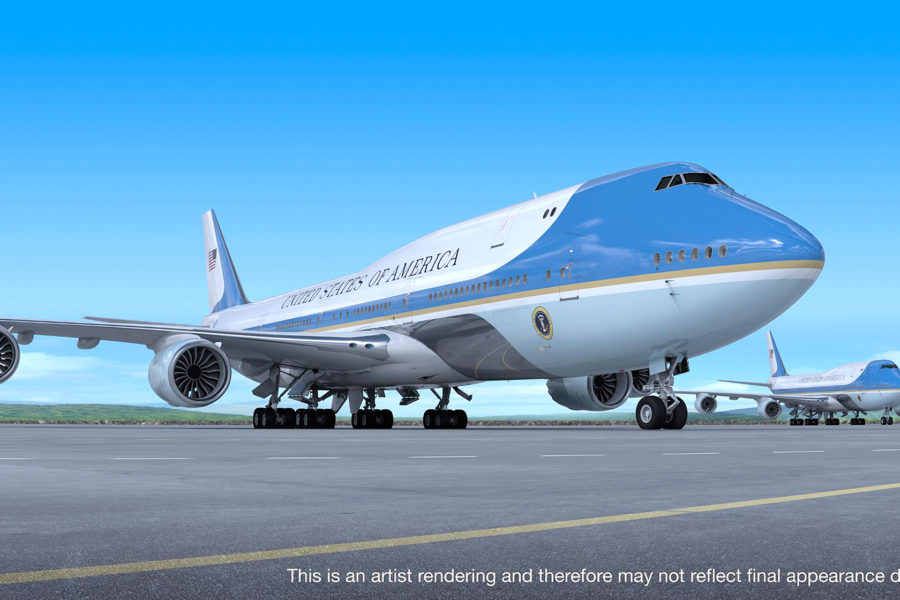Defense Secretary Pete Hegseth has directed the Air Force to start planning modifications to the 747-8 gifted to the U.S. by Qatar into a suitable presidential transport, Air Force Secretary Dr. Troy E. Meink told the Senate Armed Services Committee May 20.
The White House has said the jet will be ready for service as Air Force One before President Trump leaves office, or 2029.
“The Secretary of Defense has directed the Air Force to basically start planning to modify the aircraft,” Meink said during a Department of the Air Force posture hearing, his first testimony to Congress since being sworn in to the job May 16.
Under questioning from Sen. Tammy Duckworth (D-Ill.), who expressed numerous concerns about the security of the aircraft, Meink agreed that the Air Force will “have to look at all of those issues.” Duckworth was irked by the likely high cost of modifying the plane, given the president’s need to be in unquestioned instant contact with U.S. nuclear forces and conduct routine but highly secure communications with senior government officials.
But Chief of Staff Gen. David W. Allvin said the Air Force “will be postured to make the modifications necessary” to the former Qatari royal family’s aircraft to make it suitable for the president’s use. It wasn’t clear if that meant the service would be provided the funds to make the needed changes. Allvin and Meink testified alongside Chief of Space Operations Gen. B. Chance Saltzman in the annual Department of the Air Force fiscal 2026 posture hearing—a highly unusual occurrence as a budget has yet to be released.
Pressed by Duckworth to say how significant the changes needed will be, Meink said that “any civilian aircraft will take significant modifications” to be configured as a presidential transport. “Based on the secretary’s direction, we are postured, and we’re off looking at that right now; what it’s going to take,” he added.
Duckworth insisted that Meink commit to advising President Trump not to accept “cutting any corners” or “lower operational security” to get the aircraft in service on an accelerated timeline and said she is concerned that the two VC-25B 747-8 presidential transports already under construction have “had their requirements loosened” to accelerate delivery.
“I’m unaware of any requirement changes to the current program,” Meink responded. “And yes, we will, as we lay out the plan, we will make sure that we do what’s necessary to ensure” the aircraft is fit to carry the president with all the communications, safety, and self-defense measures required.
“I will be quite clear and discuss … with the secretary [and] the president … if we feel there’s any threats that that we are unable to address,” he said.
Boeing has been building two pre-owned, but never-operated 747-8s to serve as Air Force One, under a $3.5 billion contract awarded in 2018. Boeing has incurred more than $2 billion in losses on the fixed-price project and has cited labor shortages, especially the ability to get security-cleared workers, and supply chain issues as reasons for the delays. Industry observers have said it’s unlikely that the aircraft donated by Qatar could be modified quickly enough to be in service before the end of Trump’s tenure in office. The Defense Department has not yet explained how the 13-year-old ex-Qatari aircraft would be altered, whether there will be a competition to perform the modifications, or whether Boeing would be assigned the additional work.
The airplane in question has been largely idle for four years, as the Qatari royal family has attempted to sell it but found no buyers.
To meet the most-stringent requirements for the airplane, industry officials have said it might be necessary to strip the aircraft to its metal frame to ensure no spying or tracking devices are installed, and that the suite of self-defense, communications and engine power requirements needed to meet the demands of presidential safety would cost billions of dollars not now programmed into the Air Force’s budget.
“Far from saving money, this unconstitutional action will not only cost our nation its dignity, but it will force taxpayers to waste over a billion …. taxpayer dollars to overhaul this particular aircraft, when we currently have not one, but two, fully operational and fully capable Air Force One aircraft,” Duckworth charged.
But, in any event, the Air Force must “protect all Americans from the dangers posed if the president’s sensitive communications are intercepted or if he is out of contact, God forbid, with our nation’s military during a crisis,” she said.
